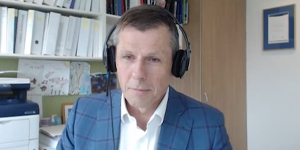The Champion #91 – December 2020
This issue:
- Professor Bob Batey wins 2020 Hepatitis NSW Cheryl Burman Award
- Mandatory Disease Testing Bill a major step in the wrong direction
- 2020 Audrey Lamb Community Forum and Annual General Meeting
- Hepatitis NSW and NADA “renew our vows”
- “My Health, Our Family” report on mixed viral status in families released

Professor Bob Batey wins 2020 Hepatitis NSW Cheryl Burman Award

Hepatitis NSW is delighted to announce that Professor Robert (Bob) Batey is the 2020 winner of the Cheryl Burman Award. The award acknowledges outstanding work or achievements by an individual or team in NSW within the viral hepatitis sector.
The Cheryl Burman Award, presented as part of our Annual General Meeting, this year recognises Professor Batey’s distinguished career of service to communities affected by viral hepatitis through research, clinical excellence, prioritising patient needs and advocacy.
Professor Batey trained at Sydney Hospital, Royal Prince Alfred Hospital, and the Royal Free Hospital in London – the start of a fifty years plus career which has included internal medicine, gastroenterology, hepatology, and substance dependency medicine. He has held numerous prominent positions within the hepatology sector, providing clinical guidance and expertise in frontline clinical roles as well as policy development and leadership positions at a state and national level.
As an advocate for the affected hepatitis C community, Professor Batey was a member of the group of clinicians who lobbied the Federal Government to ensure equitable access to treatment. The first subsidised treatment for hepatitis C – Interferon – was listed on the Pharmaceutical Benefits Scheme (PBS) in 1994 and was placed under the management of Professor Batey and the National Interferon Database.
Professor Bob Batey has always put the needs of the patient and the affected community as the priority, to ensure their needs are not only heard but addressed.
The outstanding work being done by individuals across NSW to improve health outcomes for people living with and affected by hepatitis B and hepatitis C is inspiring. This was demonstrated by the calibre of the other finalists, Sinead Sheils and Bill Lenane.
Hepatitis NSW congratulates Bob, as well as finalists Sinead and Bill, and thanks all nominees for this year’s award. Once again, all nominees for this year’s award demonstrated strong leadership and initiative in the sector.
- Read the full statement >>> CLICK HERE
- Read about past Cheryl Burman Award winners >>>CLICK HERE
Mandatory Disease Testing Bill a major step in the wrong direction

On November 11, the NSW Government introduced the Mandatory Disease Testing Bill (2020) into NSW Parliament. The Bill allows for orders to test the blood of people who spit at, or bite, emergency service and frontline workers (police, paramedics, nurses, and so forth). Hepatitis NSW, along with many other expert and qualified stakeholders (including ACON, NUAA, ASHM and SWOP) strongly oppose mandatory testing as it is ineffective in reducing harm or risk to people involved in potential exposure incidents. Further, such policy will cause different actual harm – particularly to marginalised communities – cost money and add to system pressures.
Hepatitis NSW strongly supports the wellbeing and safety of emergency services personnel. We agree they must be protected as much as possible in a high-level occupational risk environment. However, this Bill does not afford any real certainty, protections, or peace of mind, whilst current policies and procedures already do.
Any decision on mandatory testing should be based on medical and scientific evidence. The risk and likelihood of transmitting blood borne viruses (BBVs) – hepatitis C, hepatitis B, and HIV – through contact with saliva or spitting is effectively zero. Testing people who have not genuinely placed other people at risk is futile. Emergency workers may, in fact, miss out on health protections due to such a misinformed approach.
NSW has, until now, had a long and proud history of leadership in bipartisan, evidence-based, considered public policy responses that balance public health and individuals’ human rights. This proposed approach does a disservice to NSW as a national leader.
A well-informed risk management approach best protects frontline workers’ work health and safety; this includes vaccination for hepatitis B and, where any blood-to-blood exposure risk occurs, a rapid assessment and response by medical staff.
The Bill will increase stigma and discrimination experienced by people living with hepatitis C, hepatitis B and other blood borne viruses. It also presents risks and harms for many thousands of marginalised people in this state – the overwhelming majority of whom pose no blood borne virus risk to the emergency workforce.
Fundamentally this Bill is an inappropriate criminalisation of a health issue, one which has been dealt with through world-leading, evidence-based, bipartisan policy.
2020 Audrey Lamb Community Forum and Annual General Meeting

The Hepatitis NSW 2020 Audrey Lamb Community Forum, including the Annual General Meeting was held on Wednesday, 25 November. This year, as with so many events held in 2020, the event was conducted fully online, via Zoom. Despite the apparent limitations of the digital platform, the event retained all its familiar elements, ran smoothly, and was very well attended.
Audrey Lamb Community Forum
Following a warm Welcome to Country by Aunty Ann Weldon from the Aboriginal Land Council, this year’s Audrey Lamb Oration was given by Mr. Michael Coutts-Trotter (pictured), the Secretary of the Department of Communities and Justice. Michael first spoke about his lived experience of hep C, and stigma and discrimination, followed by efforts and programs to eliminate both transmission and prevalence of hepatitis C within the NSW prison system. His words were heartfelt and very well received by online attendees.
Annual Report and Service Statement
Our Services and Annual Report 2019/20 was launched during the AGM. This report gives a snapshot of our work and its impact, as well as describing the programs and services we provide for people living with or affected by hepatitis C and hepatitis B in NSW.
To read >>> CLICK HERE
Hepatitis NSW Board
Following the 2020 Annual General Meeting, the following people will sit on the Hepatitis NSW Board for the next 12 months:
- Denise Jarratt – President
- Jae Kang – Vice President
- Rengen Parlane – Secretary
- Sammy Marfatia – Treasurer
- Keziah Bennett-Brook
- Kurt Brereton
- Alex Chidzey
- Maurice Giacche
- Tracey Jones
- Sally-Ann Joseph
- Joe Lawler
- Carol Liu
- Satyajit Patra
- Alex Southcott
Hepatitis NSW and NADA “renew our vows”

Hepatitis NSW has signed onto another three years of partnership with our friends at NADA – the Network of Alcohol and Drug Agencies. The formal Memorandum of Understanding is practical and straightforward, building on valuable years of experience and collaborative efforts to improve the health and well-being of our blended communities – people affected by viral hepatitis accessing alcohol and other drug treatment services.
Over the last three years, Hepatitis NSW have collaborated with NADA by delivering training around hep C for NADA members, participating in the NADA conference and providing promotion for their conferences through The Champion. NADA have published several articles by Hepatitis NSW in their quarterly magazine Advocate.
By joining forces, Hepatitis NSW and NADA aim to increase workforce capacity, strengthen community voices advocating for better health policy, strengthen communication and information sharing, and deliver on collaborative opportunities set out in a joint activity workplan.
In the picture above, Rob Stirling, NADA CEO (right) and Steven Drew, Hepatitis NSW CEO (left) sign the MOU on November 15, at the NADA office.
We are thrilled to be posting our renewed relationship status and can’t wait for next year’s activities to kick off!
“My Health, Our Family” report on mixed viral status in families released

The clinical management of blood borne viruses has changed considerably in recent years. Yet social stigma continues to be a significant issue. Families that include members with a mixed viral status (which is also known as ‘serodiscordance’) play a critical role in supporting relatives diagnosed with HIV, hepatitis B and/or hepatitis C. However, little is known about the role and experiences of families in the prevention, management, and treatment of these viruses.
Researchers at the Centre for Social Research in Health (UNSW), in collaboration with the Social Policy Research Centre (UNSW) and The Burnet Institute are conducting a three-year project documenting personal accounts of what serodiscordance means within everyday family life.
They have conducted interviews to study the experiences of families in Australia affected by HIV, hepatitis B or hepatitis C. Over sixty people shared their stories of living with a blood borne virus or supporting a diagnosed family member. Twenty key informants working in the health and social policy, care and advocacy sectors were also interviewed.
They have recently published what they learned from these interviews in My health, our family: documenting stories of family life in the context of HIV, hepatitis B or hepatitis C. Some key findings include:
- Stories of disclosure to family included experiences of shock, blame, and rejection, as well as families rallying to provide emotional, practical or financial support.
- Some families felt compelled to reach out and educate friends and acquaintances to try and destigmatise these blood borne viruses, while others kept the diagnosis strictly secret.
- Family support was both desired and often expected when facing a crisis, so when support was not forthcoming, it was seen as hurtful and unforgivable.
- Some families spoke openly about the diagnosis and took an interest in finding out more about living with blood borne viruses, while others emphasised the importance of carrying on as ‘normal’ and not giving the diagnosis undue attention.
- Despite the unlikely probability of transmission in casual, everyday interactions, fears about ‘contagion’ surfaced in some interviews. This occurred across cultural backgrounds and across all three viruses.
- In contrast, in many interviews, transmission risk was dismissed as a consideration and narratives of love, solidarity and science were instead prioritised and mobilised to counter traditional notions of risk.
For more information and to download the report >>>CLICK HERE






